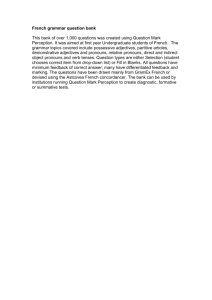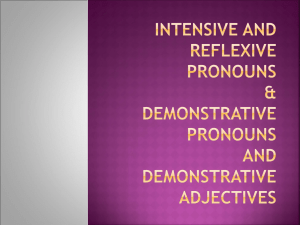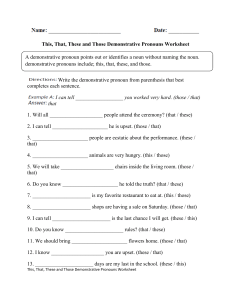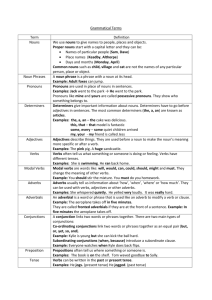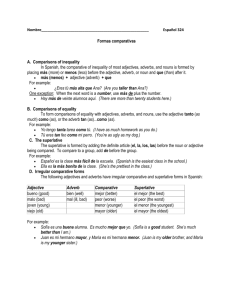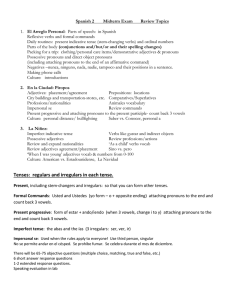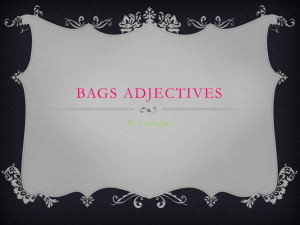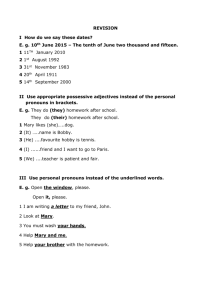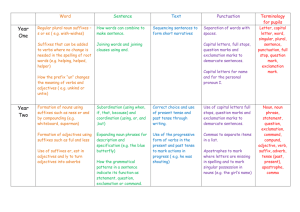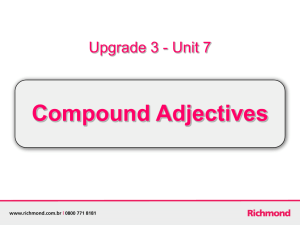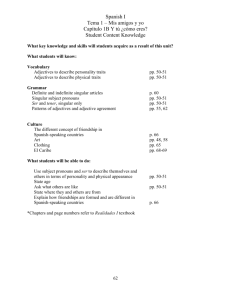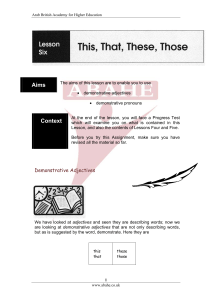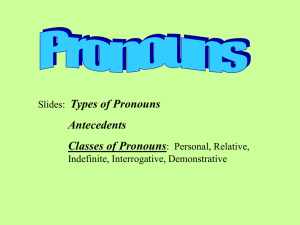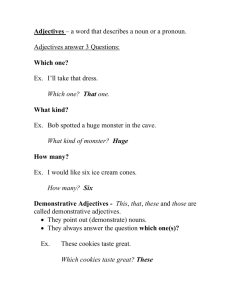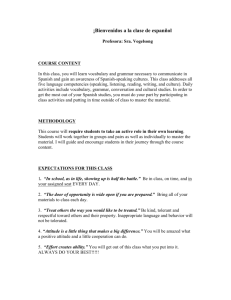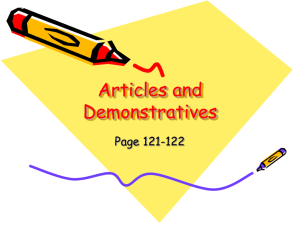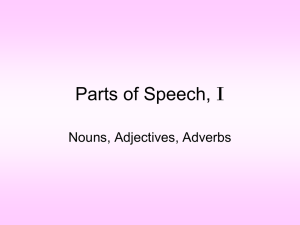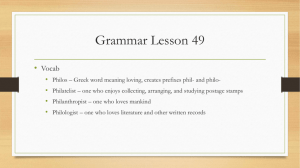Key Grammar Term: VERBS
advertisement
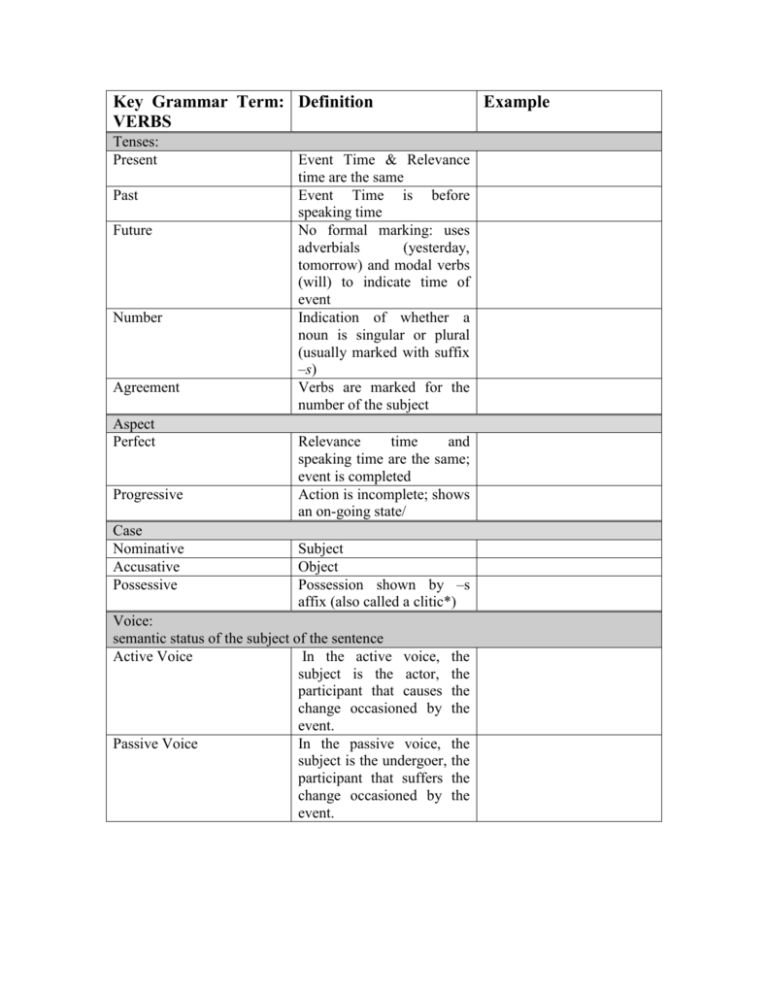
Key Grammar Term: Definition VERBS Tenses: Present Past Future Number Agreement Aspect Perfect Progressive Case Nominative Accusative Possessive Event Time & Relevance time are the same Event Time is before speaking time No formal marking: uses adverbials (yesterday, tomorrow) and modal verbs (will) to indicate time of event Indication of whether a noun is singular or plural (usually marked with suffix –s) Verbs are marked for the number of the subject Relevance time and speaking time are the same; event is completed Action is incomplete; shows an on-going state/ Subject Object Possession shown by –s affix (also called a clitic*) Voice: semantic status of the subject of the sentence Active Voice In the active voice, the subject is the actor, the participant that causes the change occasioned by the event. Passive Voice In the passive voice, the subject is the undergoer, the participant that suffers the change occasioned by the event. Example Parts of Speech Definition Noun a word or phrase that refers to a person, place, thing, event, substance or quality Example Pronouns nominative pronoun Subject of phrase; initiator I, you, he, she, it, we, who, of a verb and they. objective pronoun Target of a verb me, us, him, her, whom, and them possessive pronoun A word that attributes my, your, his, her, its, our, ownership to someone or their something without using a noun Demonstrative pronouns Definite demonstrative Point to an antecedent and this, that, these, those, one, pronouns demonstrate how close ones, none, such. something is Indefinite demonstrative Function as substitutes for each, either, neither, pronouns a noun that is understood or everyone, everything, implied; generally have no anybody, some, many and specific antecedent in one mind. Adjectives:An adjective is a part of speech which modifies a noun, usually making its meaning more specific. comparative adjectives -er is used as a suffix for Rule-buster: curiouser comparison of two things with short Anglo-Saxon words More is used before longer, French-derived words superlative adjectives -est is used to show that one of three or more things transcends in regard to a particular quality; most is used before longer words demonstrative adjectives Deictic words which this, that, these, and those. indicate which entity a speaker refers to predicate adjectives Adjective that functions as GWU is cool. a predicate Attributive adjectives Proceeds the noun (as in most English) (some cannot be predicates) EVENT TIME EVENT TIME EVENT TIME (PAST TENSE) (FUTURE TENSE) (PRESENT TENSE) -------|---------------------------|--------------------------|---------- SPEAKING TIME (THE NOW) Time line for past perfect EVENT TIME RELEVANCE TIME (PAST TENSE) ---------|-----------------------------|--------------------------------|--------SPEAKING TIME (THE NOW) *In linguistics, a clitic is a morpheme that functions syntactically like a word, but does not appear as an independent phonological word; instead it is always attached to a following or preceding word.

